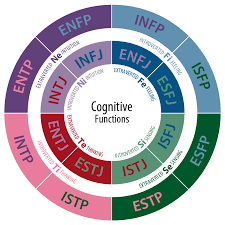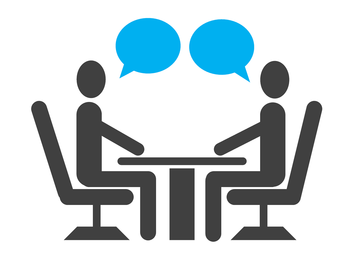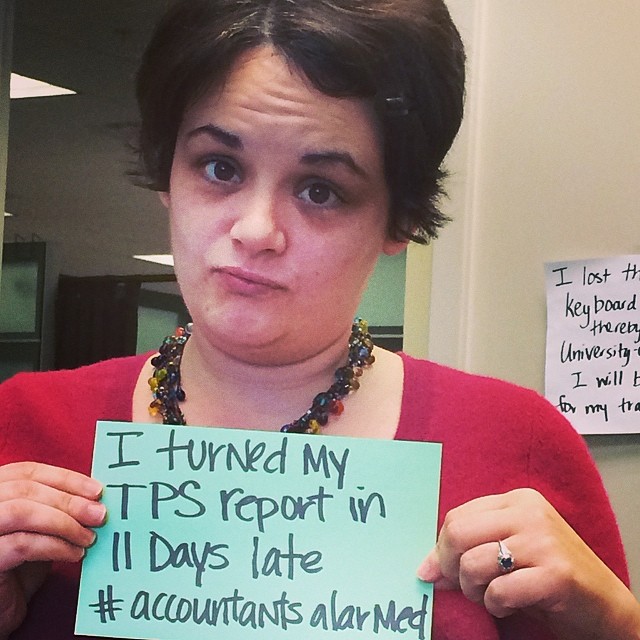|
You know what kind of person makes a great phonathon caller. It's easy to spot characteristics such as confidence, sincerity, and enthusiasm in any conversation. But the most important variable to the success of a phonathon caller (or any fundraiser) isn't personality or even work ethic, it's RETENTION. Whether or not they stick with job will largely determine their success and yours.
So, in an interview process, the content of your questions should be about the potential longevity of the candidate. You can assess the other qualitative characteristics while you are talking about other things. I'm hiring right now to build a phonathon program for the seminary I work for and these are the only interview questions I am using and I know I'm getting the best team players with this method. I've used these three questions for a long time and they help you find awesome callers who will stick with it and learn to be outstanding young fundraisers. In fact, they are actually great questions to ask candidates for any position. None of them are specific to call center or fundraising. They are all about how the candidate views work and keeping their commitments.
Better yet, do they indicate an interest in the business of philanthropy or an understanding of how the skills gained by working at the call center will help them long term?
Other answers will be more vague and abstract. I won’t say that these are not a good match for call center work, but these more abstract students may need more structure and guidance. If, however, you see an over-involved, over-scheduled student who can’t answer this question concretely, that’s a problem.
Those who have a high degree of personal integrity and can articulate their values in a clear way are loathe to quit when they have committed to something important. They can become the trusted core of your team. What are your favorite interview questions and why? Try these questions out and see if you don't make your interview process more efficient by both saving time and getting better callers through the hiring process. If you liked this post, you will probably love my book How to Staff Your Phonathon Super-Fast, Seven Secrets to Fill the Seats. It's full of information on how to find your staffing targets, generate tons of applications, interview fast, hire for retention and keep great callers! Purchase your copy today. And subscribe to Real Deal Fundraising so you don't miss a single post! If you're not familiar with the film, Office Space, get thee to your Netflix list and order it up straightaway. Anyone who works in an office must see this movie because it not only provides catharsis for the modern worker (there's scene where the characters destroy an evil printer), it gives us perfect metaphors to describe what we don't like about our work. You see, I'm a fundraiser. I am focused on all things forward and outward. As a consequence, I am terrible at getting my expense reports done on time. Expense reports are important and I realize this but I cannot seem to get them done on time! This causes some problems for the accounting staff. The photo above is my "punishment" for one of the times that I turned my monthly expense report in 11 days late. I tried to look as remorseful as possible. We called the expense reports "TPS reports" because they had to be done in a certain, specific way and the fundraisers always seemed to be getting it wrong. So, even if it was done on time, you usually had to modify somehow to get it right after turning it in the first time. So, for your Friday fun and entertainment, I give you the Office Space scene RE: TPS Reports. Enjoy!  When I was in high school I went to a leadership conference and the organizers had each attendee take the Myers-Briggs Personality Test. (If you aren't familiar with this personality assessment, check out 16personalities.com. I found their analysis to be spot on and helpful as well.) I’m always the same type: ENTJ, the Field Marshall. It’s a relatively rare type and I had never met anyone else that was also an ENTJ. On the last day of the conference, the organizers did something fiendish. They split the group of about 200 student leaders up into smaller groups by personality type. We were given a project to accomplish with those who were our same type. There were only 2 other ENTJs. I immediately loathed both of these people. We all were supremely confident that we had the answers to lead the group to victory and we were all quite vocal about it. I began to wish that I had never met another ENTJ. Was I this terrible to be around? Our group made no progress on the project because we could not stop arguing. After a certain amount of time, these conference organizers gave us all new groups. We were matched with a diverse group representing many different Myers-Briggs types. What a relief! The other groups had struggled too, in different ways. Certain groups couldn’t finish because they just socialized and never got on task. Still other groups over-deliberated. Some never had a leader step forward at all. Each person in our new group had a natural role. I assumed the executive role and others helped the group cooperate and still others made sure we took all details into account. Compared to my ENTJ group, this was project bliss. What I learned from this experience was that there is truly strength in difference. Hiring others who are just like you is not a winning strategy. Also, work is more fun if everyone is a little bit different. Quirks emerge when folks are not all the same. Not to mention that it leads to more productivity when skill sets complement each other rather than clash. So, next time you take one of those personality quizzes on Facebook, think about the results those around you might get too and how that helps you succeed together. Consider this too in your choice of mentor and in your hiring decisions. If you are a big picture “N” (Intuitive), it might be worthwhile to have a “S” (Sensing) perspective in your office to balance your tendencies. You might be so idea driven, you miss critical details that would affect implementation. As a manager, if you are a “TJ” combination (Thinking-Judging), you’ll tend to make snap decisions based on rationality and you’ll often alienate those who are make slower decisions based on feelings. It’s a good idea to consult someone who approached problems differently, especially if your decision will affect many other people. Learning more about yourself is fun and, like a horoscope, it’s entertaining to see how your profile "matches" you. But, I would challenge you to use these types to learn more about those around you for better understanding and perspective. |
Jessica Cloud, CFREI've been called the Tasmanian Devil of fundraising and I'm here to talk shop with you. Archives
June 2024
Categories
All
|



 RSS Feed
RSS Feed
